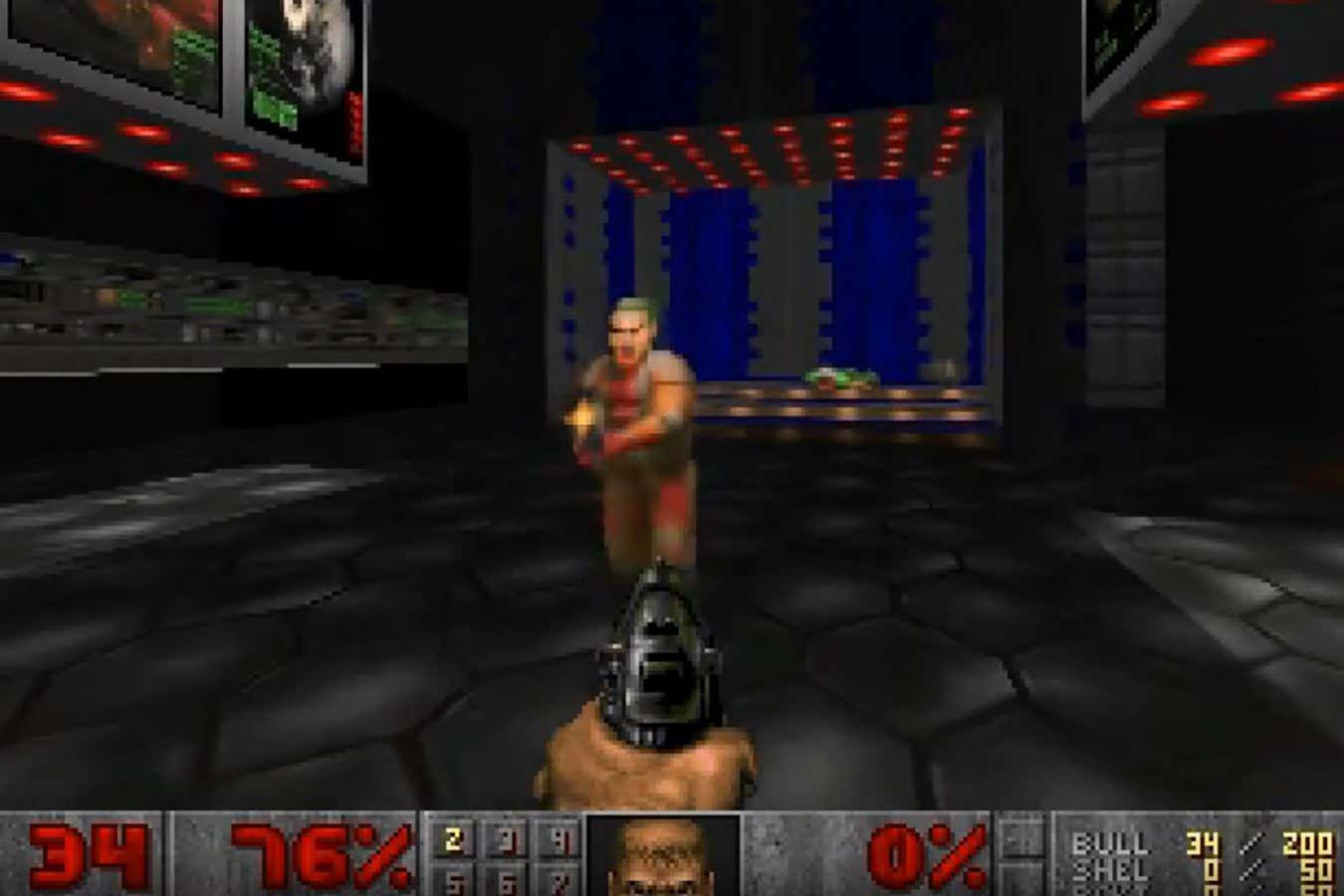The model, called GameNGen, was made by Dani Valevski at Google Research and his colleagues, who declined to speak to New Scientist. According to their paper on the research, the AI can be played for up to 20 seconds while retaining all the features of the original, such as scores, ammunition levels and map layouts. Players can attack enemies, open doors and interact with the environment as usual.
After this period, the model begins to run out of memory and the illusion falls apart.



Regardless of the technology, isn’t this essentially creating a facsimile of a game that already exists? So the tech isn’t really about creating a new game, it’s about replicating something that already exists in a fairly inefficient manner. That doesn’t really help you to create something new, like I’m not going to be able to come up with an idea for a new game, throw it at this AI, and get something playable out of it.
That and the fact it “can be played for up to 20 seconds” before “the model begins to run out of memory” seems like, I don’t know, a fairly major roadblock?
It’s just a research paper, not a product. It’s about discovering and learning new possible methods and applications.
That’s a fair point actually, I’m looking at it through a product lens, not a research one.
Yes, this does nothing for game dev. But I don’t think it was supposed to.
The fact that this is a genAI Model generating a reasonable, context aware image a whopping 20 times a second is nonetheless pretty impressive.
Unless you can monetize those 20 seconds like crazy
This sounds like the basis for a new Warioware game.
So you think a project should be killed immediately upon inception because it’s not immediately perfect? That is a really really weird attitude.
I’m more taking issue with this quote from the article:
“Researchers behind the project say similar AI models could be used to create games from scratch in the future, just as they create text and images today.”
This doesn’t strike me as something that can create a game from scratch, it’s something that can take an existing game and replicate it without having access to the underlying source code, and use an immense amount of processing power to do it.
Since it seems they’re using generative AI based technology underneath it, they’re effectively building a Doom model. You might be able to spin a Doom clone off from that but I don’t see it as something you could practically throw another game type at.
That being said as I said in a different reply, I was viewing it through the lens of something more product based rather than that of a research project. As a field of research, it’s an interesting topic. But I’m not sure how you connect it to “create games from scratch” if you don’t already have an existing game available to train the model on.
Why do you think it needs an existing game to train the model on? They used Doom precisely because it already exists.
The entire point to the research paper was to see if humans could tell the difference between the generated content and the real game, that way they have a measurable metric of how viable this technology is even if only in theory, that means that they have to make something that’s based off a real game.
Obviously the technology isn’t commercially viable yet. But the fact that it looks even remotely like Doom shows that there is promise to the technology.
Perhaps you could be missing the trajectory of continuous improvement. How long until The Matrix?
It’s an exponential increase as well and humans are very bad at judging exponential increases they look at something like this and they see no promise in it because they can’t see that four or five iterations down the line (and in the world of AI that could very easily be 3 months) it will be hundreds of times better.